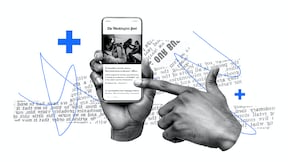The head of the National Security Agency delivered a vigorous defense Wednesday of his agency's collection of Americans' phone records for counterterrorism purposes, asserting that the program was helpful in investigations of the Boston Marathon bombing and the suspected plots against U.S. diplomatic outposts this summer.
Alexander's address follows calls by some leading lawmakers to end the program because of concerns that it invades Americans' privacy without having proven its value as a counterterrorism tool.
In a brief interview after his talk, Alexander said the program did not help identify the Boston suspects, brothers Dzhokhar and Tamerlan Tsarnaev. But he said that by using the database of domestic phone call records, the NSA was able to determine that fears about a follow-up attack in New York City were unfounded.
“We did use [Section] 215,” he said, referring to the USA Patriot Act provision that the government has claimed a federal court has agreed gives it the authority to collect data on practically all calls made in the United States. “We used it to support the FBI in their investigation.”




Similarly, he said the records database — which contains the numbers, times and duration of calls but not their content — was useful in determining that there were no threats against targets in the United States in connection with the suspected targeting of U.S. embassies over the summer.
In nearly hour-long remarks and the interview afterward, Alexander offered his most impassioned defense of a program that is under fire and that he fears could be curtailed or abolished. He said that the NSA’s database, which former officials say contains billions of phone number records, is the only way the government can quickly “connect the dots” between suspect foreign numbers and those in the United States.
"Somebody who has a database that can look at the foreign and the domestic numbers can . . . get the information back quickly and can tell you where there's a threat and where there's not," he said.
The program began shortly after the Sept. 11, 2001, attacks under authority claimed by the executive branch. It was secretly put under surveillance court oversight in 2006 after U.S. phone companies balked at continued cooperation in the wake of disclosures of the NSA’s warrantless collection of domestic e-mails and phone-call content in 2005.
Alexander stressed that the Section 215 program does not collect the content of Americans’ communications. He accused the media of having “hyped” and sensationalized the facts to suggest that the agency listens to calls.
The NSA does read the e-mails and the transcripts of phone calls of Americans who are in contact with foreign targets overseas, but it does so in a separate program authorized under the Foreign Intelligence Surveillance Act. That program, authorized in 2008 under Section 702 of FISA, has been the subject of concern because it does not require an individual warrant for each target whose communications are intercepted.
Alexander said both programs are essential to thwarting terrorism. But some lawmakers, notably Sens. Patrick J. Leahy (D-Vt.) and Ron Wyden (D-Ore.), have asserted that, although the targeting of foreigners has shown value, they have not seen similar results from the domestic phone records collection. They have introduced legislation aimed at ending that program.
Hearings are scheduled this week and next on proposals to reform FISA and NSA surveillance to restore public trust and assess whether the balance between privacy and civil liberties needs to be altered, and if so, how.
Alexander denounced “the media leaker,” a reference to Edward Snowden, a former NSA contractor whose disclosures to press outlets over the past three months have ignited a national debate about privacy and security and trained a spotlight on an agency that prefers to work in complete secrecy.
Snowden fled first to Hong Kong and then to Russia, where he obtained temporary asylum. "He was an IT administrator responsible for moving data to a common Web site," Alexander said, explaining how he gained access to thousands of sensitive documents. "We trusted him and he betrayed that trust. That won't happen again."
Alexander also made an appeal to save cybersecurity legislation that is facing serious opposition on Capitol Hill in the wake of Snowden’s disclosures. Alexander, who also heads U.S. Cyber Command, said that without the authority for businesses such as large Internet service providers to share malware and suspicious network traffic with the NSA, the FBI and other government agencies, the threat posed by cyberattacks will continue to grow.
He pointed to a potential cyberattack on Wall Street. “What we can tell you is how they went down and how bad they were, but if we can’t work with industry, if we can’t share information with them, we can’t stop it,” he said.



